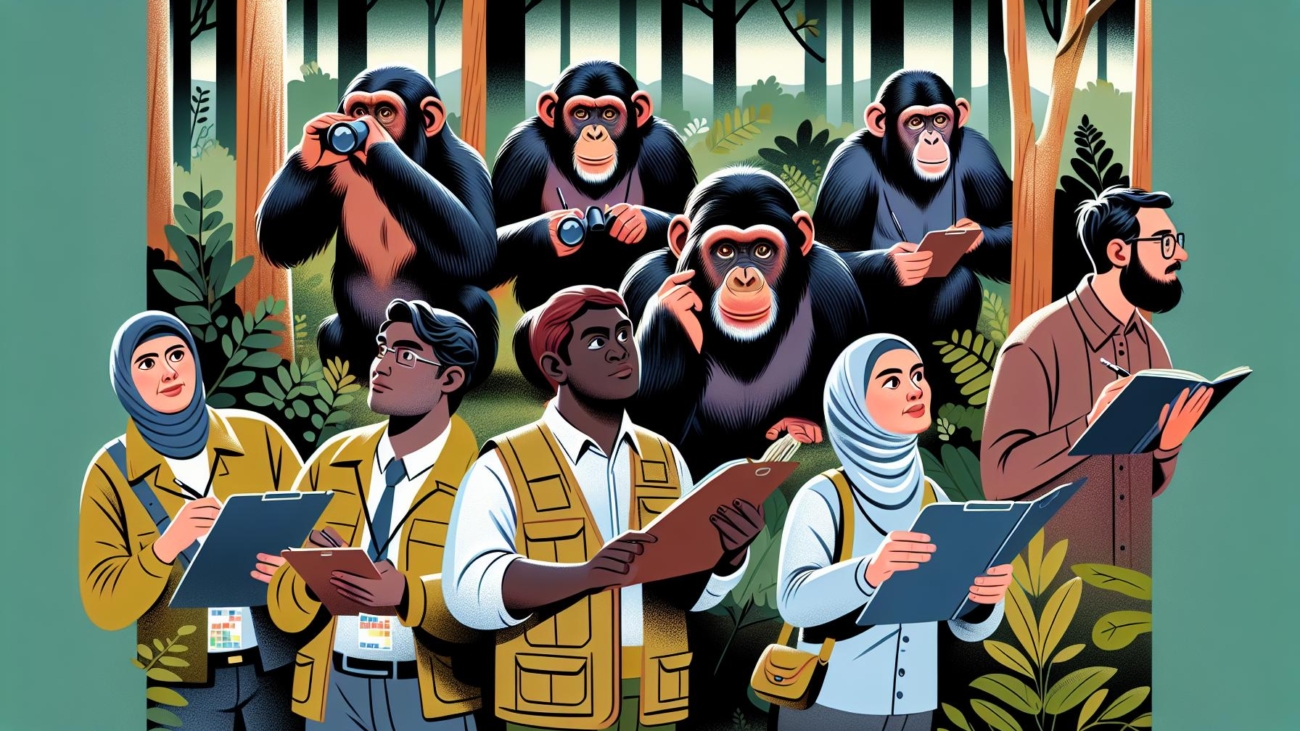A recent study shows that great apes observe events in a similar manner as humans, continuously shifting their gaze between the doer and the receiver of an action. This fascinating insight was published on November 26 in the widely accessible journal PLOS Biology by Vanessa Wilson and her team from the University of Neuchatel, Switzerland.
Imagine watching a cat in pursuit of a mouse. As observers, humans tend to divide their attention between the cat, the ‘agent’, and the mouse, the ‘patient’. This cognitive process, which underpins the formation of sentences and the understanding of events, is considered a fundamental component in the evolution of human language. To determine if great apes also have this ability to identify agent-patient relationships, the research group conducted an experiment involving 84 short video clips, featuring 14 humans, five chimpanzees, two gorillas, and two orangutans from the Basel Zoo, as well as 29 six-month-old infants.
The study found that, like their human counterparts, apes also focused mainly on the agent and the patient, often alternating their attention between the two, especially when food was involved. However, apes were found to be more attentive to the background than humans. Interestingly, unlike adults, six-month-old infants paid more attention to the background than the subject of the action.
These findings suggest that the cognitive mechanism of event perception, breaking down events into agents and patients, predates language evolution. This process is not exclusive to humans, but rather shared across the cognitive spectrum of humans and other great apes. The next step for researchers is to explore why great apes, despite sharing these cognitive mechanisms, do not communicate in the same way as humans, and to further delve into the origins of human language development.
In summary, the authors state, “Eye tracking data reveals that apes, like humans, can separate causal actions into agent and patient roles, a crucial skill for language development. Our findings indicate a shared cognitive mechanism between humans and apes, implying that the ability to track event roles evolved well before language.”
